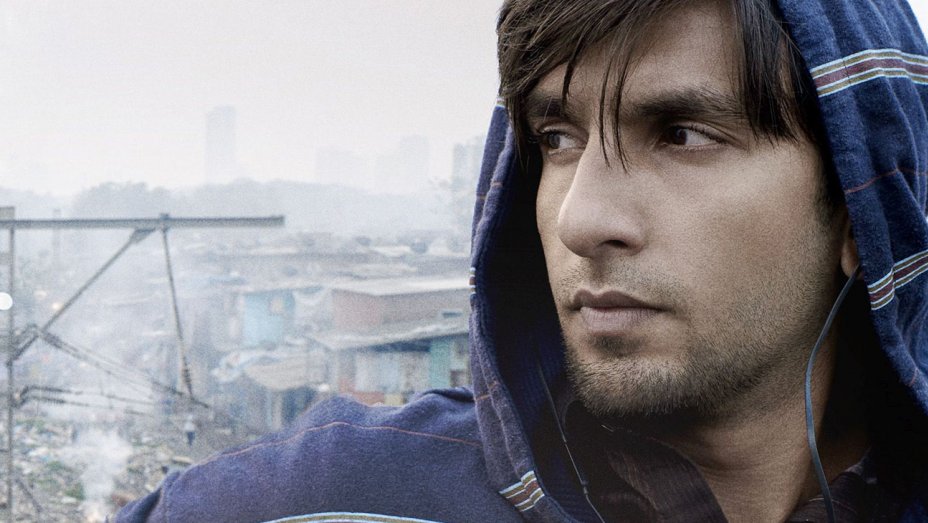Fresh, inspiring, riveting. If I could describe ‘Gully Boy’ (Street Boy) in three words, that’d be it.
Following two successful stints with Zindagi na milegi dobara (ZNMD) and dil dhadakne do (DDD), Director Zoya Akhtar hits the hat trick with ‘Gully Boy’, a film that revolves around the stories of Mumbai’s underground rappers Naezy and DIVINE.
Murad AKA Gully Boy, the character inspired by Naezy, is helmed by the extremely talented Ranveer Singh, who once again shows the audience his chameleon like ability to mold himself into any character. For some background, Murad is an aspiring and struggling rapper from Dharavi, one of the largest slums in Mumbai, India. Faced with a myriad of problems such as an abusive father, a struggling job, poverty and family issues, Murad’s journey to the top is an inspiring and eye-opening one.
In comparison to Akhtar’s previous films which can be considered ‘feel good’, Gully Boy is a striking contrast, forcing the audience to view the film without any preconceived judgement. There are several eye-opening scenes in the film where the audience is confronted with what life is really like in the slums, which I found very raw and appealing. One thing that was particularly striking was the fact that Akhtar hasn’t romanticised or glamourised poverty, unlike other films set in slums like Slumdog Millionaire. In fact, Gully Boy has a particularly memorable scene where a group of foreign tourists are on a ‘slum tour’ are fascinated by how ‘tiny’ the houses are. Here Akhtar very carefully criticises the idea of ‘poverty porn’ and ways in which the western world views slum dwellers.
The screenplay, penned by Akhtar and Reema Kagti, is a very strong one with an interesting narrative that engages the audience throughout the film. The dialogue is also extremely memorable, with lines such as ‘Apna time aayega’ (My time will come) achieving cult status amongst the Indian youth. Performance wise, Ranveer Singh shines through as Murad Ahmed in arguably the best performance of his career, second to his role as the terrifying Khilji in Padmaavat. There isn’t a single frame in the movie where you feel like you’re watching Ranveer the actor, not Murad, the struggling gully boy. He carries off the style and suave of a young ambitious boy from the streets of Mumbai with so much ease that the audience roots for him from the outset. His use of Mumbai slang whilst speaking unpolished Hindi is particularly memorable and admirable, because to me, it is a celebration of how beautifully diverse Mumbai is as a city.
Alia Bhatt, despite not having a key role, plays the role of Safeena Firdausi exceptionally well. Her feisty and fearless attitude adds humour to the film, but also makes the audience wary of her personality, breaking the stereotype held of South Asian women by being rebellious, ambitious and refusing to settle for anything less than she truly deserves. Vijay Varma, who plays the role of Moeen, Murad’s best friend, was also very remarkable. His character, to me, was reflective of the city of Mumbai; rough-and-tough but with a big heart. Overall, every character in the film, big or small, had their own journey and wasn’t simply disposed of from the narrative as an ‘extra’. Moeen and Safeena’s character arcs, in particular, were depicted beautifully, which is quite rare to see in films where the lead actor is a huge star in real life.
The actor that stole the show for me was Siddhant Chaturvedi, who played the role of MC Sher (inspired by DIVINE’s character) who is Murad/Gully boy’s mentor. As intimidating as it may have been to share the same screen with an acting powerhouse like Ranveer Singh, Siddhant somehow makes it impossible to keep your eyes off of him. His character was a type of friend everyone would hope to have, extremely selfless and supportive. One particularly beautiful scene was when Murad and him are competing against each other for a competition, and he is happier by the fact that Murad made it to finals, rather than the fact that he lost. In fact, I had most certainly expected a conflict between the two characters, but MC Sher’s selfless character proved otherwise. I sincerely hope to see him in more films due to his immense potential.
The songs in this film form its backbone, with its large album bringing a different and refreshing outlook to the Indian hip-hop scene, as well as bringing forward a lot of new and promising artists such as Spitfire (Nitin Mishra) and Kaam Bhari (Kunal Pandagale). Each song in the film is very different, yet is somehow still relevant to the plot. My personal favorite tracks are ‘Azaadi’ (freedom) and the Train song. ‘Azaadi’ which is a critical take on politics and overall society, has very hard-hitting lyrics, penned by DIVINE. Every song in this film is beautifully written, sympathetically expressing the struggles of life in India.
All in all, this film in my eyes, is one of the best made Indian films of this decade. It changes the very definition of what Bollywood films are believed to be. Akhtar is a master in her craft, and I sincerely hope she continues making such inspiring and refreshing films.
Srika Nambiar
Image Courtesy of Berlin International Film Festival

